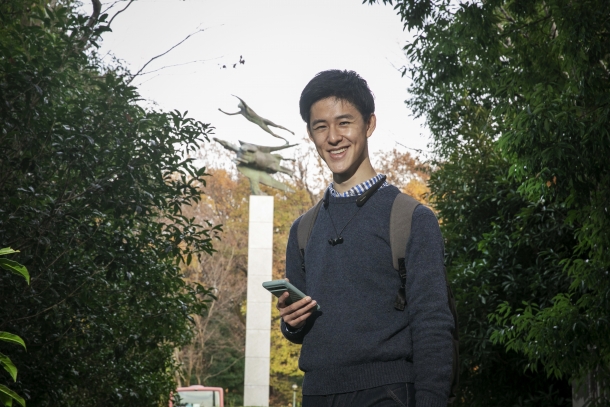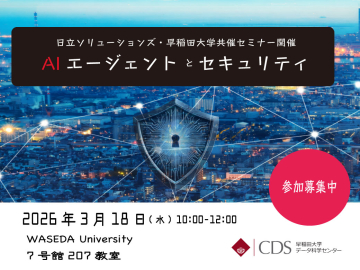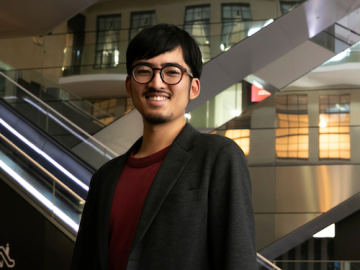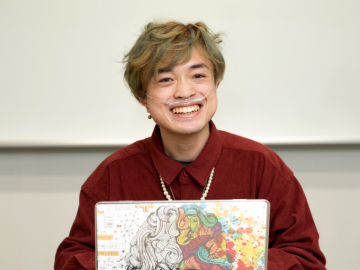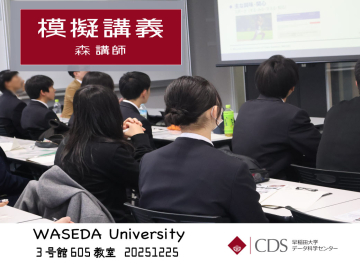Human Sciences × Data Science
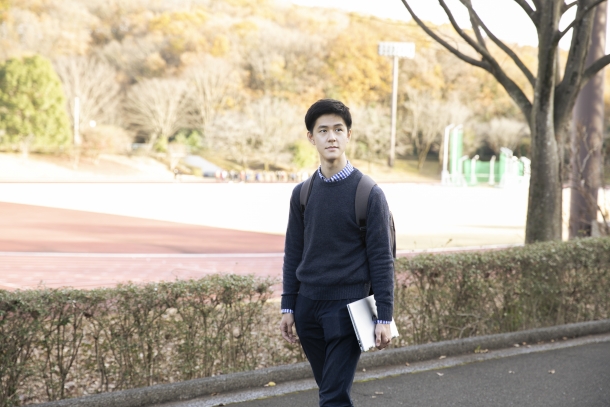
Daito Murakami, 4th year student School of Human Sciences
Data science is a field that requires perspectives from both the humanities and sciences
I am majoring in Educational Data Science at School of Human Sciences. I was originally considering going on to a mathematics faculty, and I wanted to study more mathematics outside of the subjects available at my faculty. That's when I learned about the Data Science Education Program and thought it was perfect for me, which is what prompted me to take the course. My hobby is getting qualifications, and I was also attracted to the idea of being able to progress in a visible way from literacy level to beginner level to intermediate level.
What surprised me when I actually took the course was that data science is more of a field that combines the humanities and sciences than mathematics. Of course, there are complex calculations using formulas, and people who are not good at mathematics may find it difficult, but what is more important is "where to focus when looking at the data and how to connect it." It is important to understand what is currently happening in society and what is needed, and to think of solutions, and I think this requires the creativity that comes from humanities knowledge. This was also an area that I struggled with as a science major.
At first, I was disheartened and thought, "I just want to do calculations...", but by being exposed to various academic fields such as sociology, urban studies, foreign languages, and psychology at School of Human Sciences, I think my horizons have broadened and my perspective has changed. For my current graduation thesis, I am researching the subjective happiness levels of Japan and other countries, focusing on life events and other factors, and the knowledge I gained at School of Human Sciences has been very helpful.
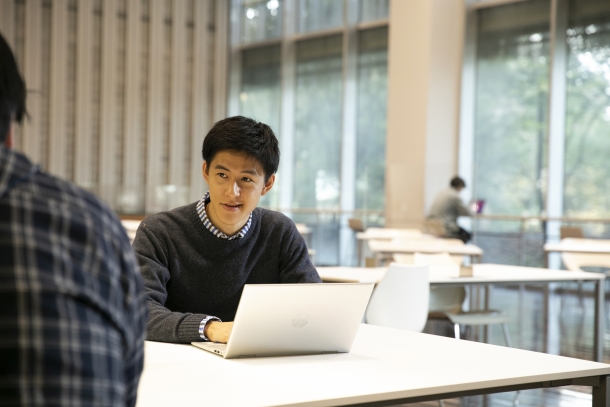 Even now that he has finished writing his graduation thesis and has a job search underway, Murakami says he is still studying hard to obtain qualifications.
Even now that he has finished writing his graduation thesis and has a job search underway, Murakami says he is still studying hard to obtain qualifications.
The Tokorozawa campus has many quiet and calm areas, so students can concentrate well.
The fun of data science rediscovered through a data science competition
As my knowledge increased through various lectures in the data science education program, I wanted to put my knowledge into something tangible form, so I took the statistics certification exam and the actuarial exam. Of the various challenges I took on, I felt that I had gained a lot of skills when I participated in the Waseda University Data Science Competition for two consecutive years.
In the first year, I participated in the event with my seniors, including graduate students and fourth-year students from the same seminar, on the theme of "Emotify - A mental health management app using Twitter API and emotion analysis." I remember being filled with a sense of accomplishment and joy when we won the Fighting Spirit Award for our proposal to measure stress in everyday life and propose a service to relieve it. In the second year, four of us from the same year analyzed the trends in credit card usage rates at convenience stores.
Especially in my first year, I thought about how to incorporate this into a service, and I realized, "So data science is actually useful in this way!" It was an experience that broadened the possibilities of my studies, which I had only seen in numbers until then. It was also a lot of fun listening to the presentations of the other participating teams. In particular, the perspectives of the international students were refreshing, as they were all things I had never thought of before. I was reminded that what is interesting about data science is that even when dealing with the same data, the shape of the data can change completely depending on what people focus on.
Also, at the data science competition, we had the opportunity to hear company introductions from the sponsoring companies, and it was very meaningful to learn how companies view data science.
The time has come when not learning data science will be a disadvantage
I also worked as a learning assistant at the Math & Stat Center. My main job was to answer questions from students about the content of the lectures and their applications to specialized fields. By explaining specialized knowledge and teaching them how to solve problems, I was able to see data science from a different angle and deepened my understanding. I also sometimes answer questions together with students studying in other departments, such as those majoring in applied mathematics, and this often makes me realize that I still have a lot to learn in this area and gives me new ideas.
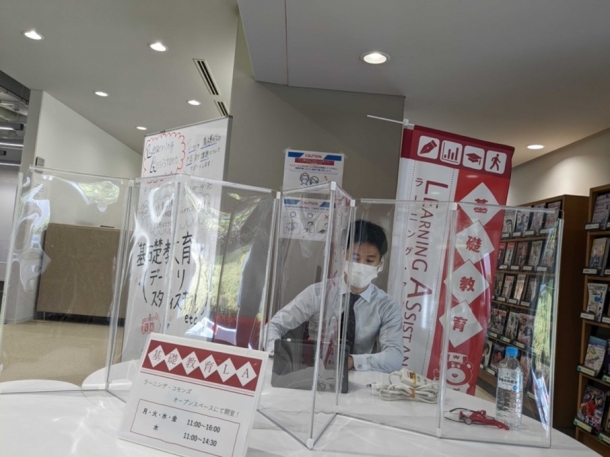 Murakami has served as LA at the faculty and the Math & Stat Center.
Murakami has served as LA at the faculty and the Math & Stat Center.
He said that he found it stimulating to be able to communicate with students he would not have been able to meet in regular classes or seminars.
Also, by studying the data science education program, I learned that there are many jobs related to data science, and the range of companies I would like to apply to has expanded. I have successfully completed my job search, and will start working as an engineer at a tax accountant's office in April. Since digitalization is lagging behind other industries, I would like to start by working on systemizing all business operations. In the future, I would like to take on the challenge of using data even more.
In high school, you may not be very interested in the subject because there is a lot you have to memorize. However, if you can learn data science from the basics to the practical aspects at university, I think you will realize how interesting data science is and how it can be applied to various fields. You will also acquire media literacy, which will be essential in the coming era, and I think it will be a useful weapon no matter what job you do in the future, so I even think that there are more disadvantages to not learning these days. I would like to use what I have learned to contribute to making data-centered decisions.
